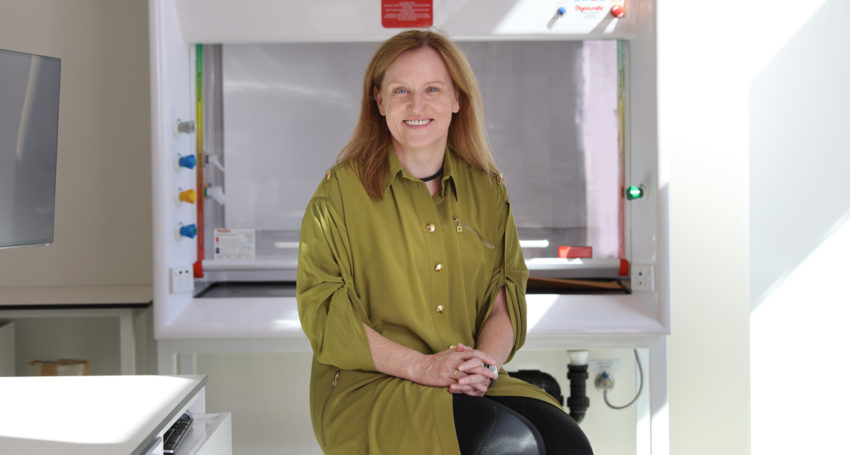‘Magic bullet’ takes aim at pancreatic cancer
Health & Medical
High-energy alpha particles are being developed in South Australia to selectively bulldoze cancer cells in the pancreas.

Sign up to receive notifications about new stories in this category.
Thank you for subscribing to story notifications.

University of South Australia professor of medication radiation science Eva Bezak and her team of researchers are developing the alpha particle emitting radioisotopes in a bid to increase survival rates of one of the deadliest forms of cancer.
Professor Bezak said the team would combine a targeted protein and a radioisotope, known as actinium 225, to create a radioimmunoconjugate capable of treating cancer.
“Once the conjugate is attached to cancer cells, the radioisotope will emit an alpha particle of high energy that will move through the cancer cells – like a bulldozer or a magic bullet – depositing its energy inside the cancer cell,” Prof Bezak said.
“In the process, it will destroy the DNA and you’ll have a highly targeted therapy where the damage is deposited very locally to a cancer cell while minimising the damage to healthy tissue.”
Prof Bezak said the targeted nature of the treatment would also minimise side effects.
“When you use chemotherapy, for example, it’s often non-targeted,” she said.
“It’s a systemic type of therapy that will affect the healthy tissue as well as cancerous tissues and hence patients have severe side effects.
“This conjugate labelled with the radioactive isotope will travel through patients’ bodies – but it will only attach itself to pancreatic cancer cells. It will not attach itself to healthy cells.”
According to Cancer Council Australia, pancreatic cancer is the fifth most common cause of death with a five-year survival rate of just 8.7 per cent.
“Despite all the advances in chemotherapy, radio therapy and other therapies, the mean survival time over five years has not changed much in the last 40 years,” Prof Bezak said.
“So, we need to come up with novel therapies, and potentially even a combination of therapies, to really win the war on this deadly cancer.”
Prof Bezak said the “up-and-coming” therapy was not only highly targeted but far more potent to cancer cells that previous treatments.
“For other cancers, studies have primarily been using a beta-particle emitting radioisotope such as lutetium 177. The problem is that the beta particles aren’t damaging enough so, while they have been used, the therapeutic outcome is not as high as what could be achieved with alpha particles.”
As well as developing the new agent, Prof Bezak said the researchers would examine at what stage a cancerous receptor was present in the pancreas in a bid to help treat patients at a pre-pancreatic cancerous stage.
“We will be looking at an inflamed pancreas that suffers from hyperplasia, which is often considered a pre-cancerous condition,” she said.
“We want to identify the switch time, when the receptor starts emerging, whether it’s already in that precancerous stage, like in chronic inflammation, or whether it’s only present once it’s turned completely cancerous.”
The pancreatic cancer treatment research has been boosted by a $100,000 Avner Pancreatic Cancer Foundation grant. The foundation this week awarded six pancreatic grants, totalling $600,000.
Avner Pancreatic Cancer Foundation CEO Michelle Stewart said the investments would help increase the survival rate for people diagnosed with pancreatic cancer.
“More than 3200 people are diagnosed each year, with the disease claiming virtually the same amount of lives as breast cancer in Australia,” Stewart said.
“Most patients will be diagnosed with late stage, metastatic cancer as the disease is extremely difficult to detect in its early stages and with no distinct early warning signs, pancreatic cancer is a debilitating and shocking disease that remains chronically underfunded.”
Prof Bezak said in vitro tests were hoped to begin by the end of the year with the aim of trialling the treatment on mice in three years.
Jump to next article



